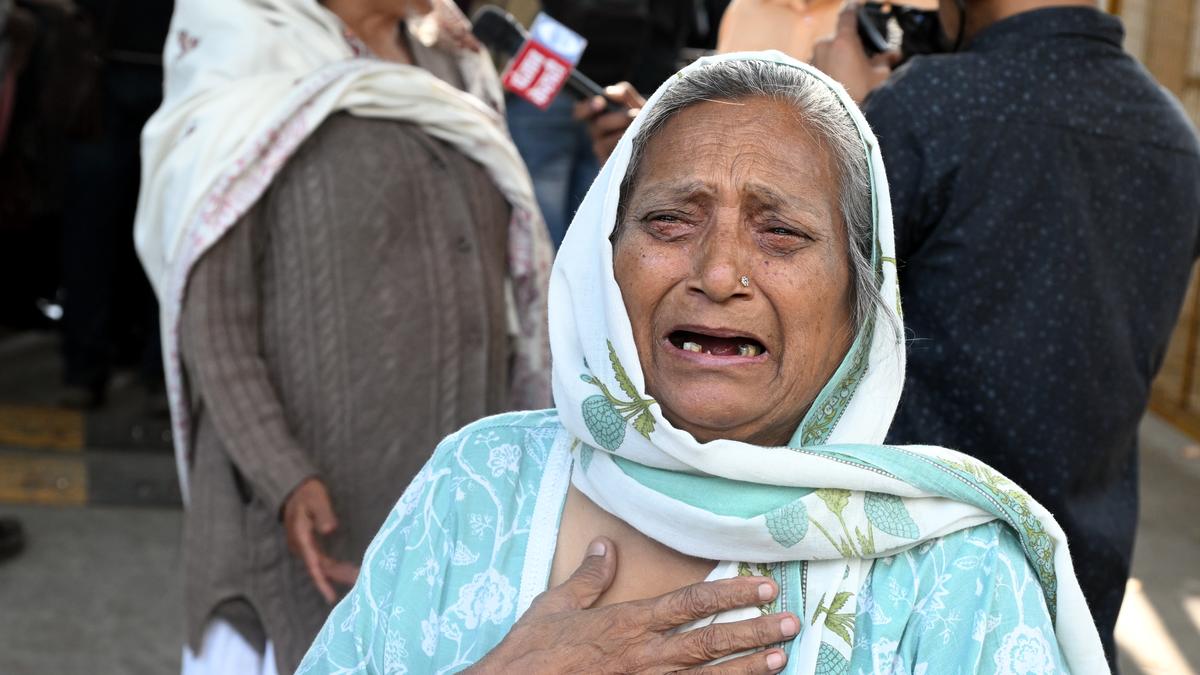 |
|
The conviction and sentencing of former Congress MP Sajjan Kumar for his involvement in the 1984 anti-Sikh riots have sent ripples through the political landscape of Punjab, igniting a fresh round of accusations, justifications, and political maneuvering. The riots, a dark chapter in India's history, continue to cast a long shadow, and Kumar's sentencing has served as a catalyst for renewed scrutiny of the events and their aftermath. The Shiromani Akali Dal (SAD), a prominent political party in Punjab, has seized upon the opportunity to pressure the Congress party, demanding a clear and unequivocal stance on Kumar's conviction and the party's alleged role in the violence. Simultaneously, the Bharatiya Janata Party (BJP) is attempting to capitalize on the situation by portraying itself as a champion of justice for the Sikh community, highlighting the Modi government's efforts to reopen the investigation into the case. The confluence of these factors has created a volatile political atmosphere in Punjab, with each party seeking to gain an advantage from the deeply sensitive issue. The demand for accountability and justice for the victims of the 1984 riots has become a potent political weapon, wielded by various factions to advance their own agendas. The long-delayed justice in the case serves as a stark reminder of the complexities and challenges in addressing historical injustices and the enduring impact of communal violence on Indian society. The reactions of the different political parties reveal the complex interplay of political calculations, historical grievances, and the pursuit of electoral gains. The SAD's demand for a clarification from the Congress party is aimed at exposing any perceived complicity or reluctance to fully condemn Kumar's actions, while the BJP's self-promotion as a pro-Sikh party seeks to solidify its support base among the Sikh community. The sentencing of Sajjan Kumar, therefore, transcends the legal realm and becomes a focal point for political posturing and the re-examination of a traumatic period in Indian history. The quest for justice for the victims and the pursuit of political advantage are intertwined in a complex dance, highlighting the enduring relevance of the 1984 riots in the contemporary political landscape of Punjab.
The political ramifications of Sajjan Kumar's sentencing extend beyond mere accusations and counter-accusations. The issue resonates deeply within the Sikh community, which continues to grapple with the emotional scars of the 1984 riots. The demand for justice is not simply a legal matter but a quest for closure and recognition of the suffering endured by the victims and their families. The political parties vying for influence in Punjab understand the importance of this sentiment and are attempting to align themselves with the cause of justice. The SAD's call for a high-level probe into the role of those who allegedly shielded Kumar and other perpetrators reflects the widespread belief that the investigation into the riots was deliberately hampered for political reasons. This demand taps into the deep-seated frustration and anger within the Sikh community over the perceived lack of accountability for the violence. The BJP's claim that it was the Modi government that finally ensured justice is a calculated attempt to portray the party as a reliable ally of the Sikh community, thereby eroding the traditional dominance of the SAD in Sikh politics. The BJP's strategy is part of a broader effort to expand its reach and influence in Punjab, a state where it has historically struggled to gain traction. The sentencing of Sajjan Kumar provides a convenient opportunity for the BJP to showcase its commitment to justice and to appeal to the Sikh electorate. However, the BJP's efforts are likely to face scrutiny from those who question the party's motives and point to its own track record on issues of communal harmony and minority rights. The political debate surrounding the sentencing of Sajjan Kumar is therefore a complex and multi-layered affair, involving historical grievances, political calculations, and the ongoing struggle for power and influence in Punjab.
The impact of Sajjan Kumar's sentencing on the broader political landscape of India is also noteworthy. The case serves as a reminder of the challenges in achieving justice for victims of communal violence and the importance of holding perpetrators accountable, regardless of their political affiliations. The long delay in delivering justice in the 1984 riots case underscores the need for systemic reforms to ensure that such cases are investigated and prosecuted effectively and expeditiously. The allegations of political interference and cover-ups that have plagued the investigation into the riots highlight the importance of safeguarding the independence of law enforcement agencies and the judiciary. The case also raises questions about the role of political parties in promoting or condoning communal violence. The accusations leveled against the Congress party in connection with the 1984 riots serve as a cautionary tale about the dangers of political opportunism and the need for parties to uphold the principles of secularism and justice. The BJP's attempt to capitalize on the situation also underscores the importance of holding all political parties accountable for their actions and policies, particularly in relation to issues of communal harmony and minority rights. The sentencing of Sajjan Kumar is therefore a significant event with far-reaching implications for the Indian political system. It serves as a reminder of the need for vigilance against communal violence and the importance of ensuring that justice is served, regardless of political considerations. The case also highlights the challenges in addressing historical injustices and the enduring impact of such events on the social fabric of Indian society. The political debate surrounding the sentencing of Sajjan Kumar is likely to continue for some time to come, as various political parties seek to exploit the situation for their own advantage. However, it is important to remember that the ultimate goal should be to achieve justice for the victims of the 1984 riots and to ensure that such tragedies are never repeated.
Source: Congress ex-MP Sajjan Kumar’s sentencing stirs up Punjab politics
